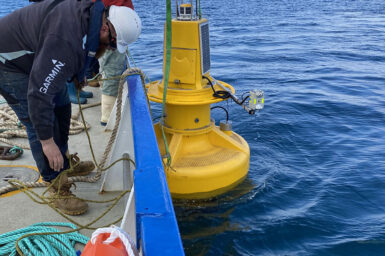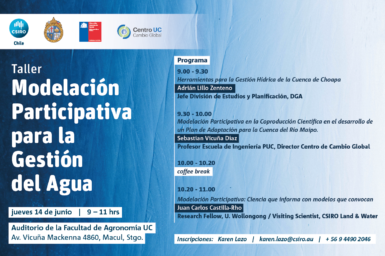Water
Water management
The drought, the pandemic and other events show once again that we are vulnerable to the vicissitudes of nature and that we must advance in being more resilient in the face of it. One of the main axes on this path is adaptation to climate change, where water plays a fundamental role, since it is the medium through which the climate affects us the most. Indeed, water is key to resisting global threats and we require better management of its cycle, incorporating knowledge, governance and technology.
The importance and peculiarity of water cannot be ignored, since it is connected and integrated with most of the goods and services on which we depend: health, food, transport, energy and the environment. Thus, if we include the management of the water cycle as an important axis in the recovery from the pandemic, it will have positive effects on people, households, companies, communities and the country.
Since 2013, CSIRO Chile has sought to face the challenges posed by human interactions with the environment, to help build resilient, productive and healthy cities, industries and ecosystems.
Our headquarters in Santiago have the support of CSIRO experts in Australia, who have extensive experience in water resources, ecosystems and social and economic adaptability, among others.
To date, CSIRO Chile has developed and executed projects related to the management of water resources with a focus of identifying and developing tools to support the stakeholders of the basins to improve their water management. A key element of the projects has been the active and continuous participation of the actors involved, which provides social legitimacy and validates the usefulness of the project’s products.
Main initiatives developed in Chile:




